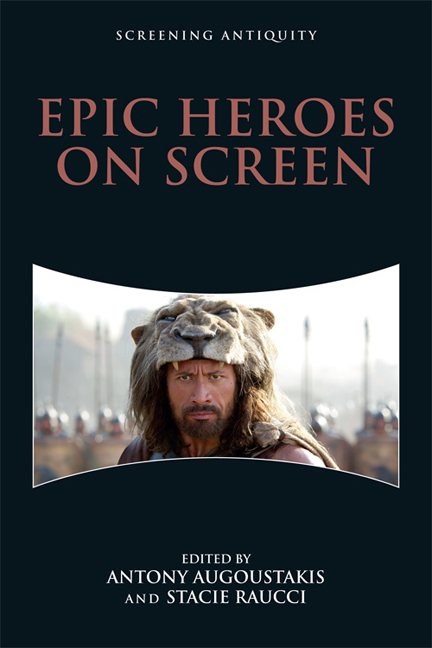11 - The Hero in a Thousand Pieces: Antiheroes in Recent Epic Cinema
Published online by Cambridge University Press: 24 April 2021
Summary
In memoriam Daniel J. Curley (1934–2016), who dreamed of heroes.
INTRODUCTION
Heroism is one of the great preoccupations of Western, if not global culture, though standards for what heroes can or should do are ever-shifting. Because they are prone to antiheroic passions such as greed, lust, and vengeance, Greek and Roman heroes often become rehabilitated in modern screen texts. The opening narration of Hercules: The Legendary Journeys (1995–9) exemplifies this tendency: “Hercules possessed a strength the world had never seen – a strength surpassed only by the power of his heart… . But wherever there was evil, wherever an innocent would suffer, there would be Hercules.” His mission is not quite Superman's “truth, justice, and the American way,” but the show clearly reconfigures one of antiquity's most problematic characters as a superhero of the past.
This chapter focuses on three historic and mythical figures – Alexander the Great, Perseus, and Hercules – portrayed in screen epics as both heroes and antiheroes. Their antiheroic status stems not so much from gestures toward ancient authenticity as from our own ambivalence toward heroism. Furthermore, antiheroism is depicted cinematically through the dissolution or fragmentation of conventional heroic storytelling, with its familiar plot patterns and filmmaking techniques. The later, antiheroic films play quite differently from their earlier, heroic counterparts – which in turn receive the relative status of classics.
SURROGATE CLASSICISM: FORMULATING ANTIHEROES
Antiheroes fulfill many cultural functions. Some of the more common include the following.
• Failures. The antihero is frequently defined in opposition to the traditionally successful hero: “A ‘non-hero,’ or the antithesis of a hero of the old-fashioned kind who was capable of heroic deeds, who was dashing, strong, brave and resourceful… . The antihero … is given the vocation of failure.” “Vocation of failure” is provocative and suggests that antiheroes do not achieve much – or, if they do, that their achievements are feeble or unworthy.
• Modern mirrors. “A fragmented society – torn by war, conflicting values, cultural crisis, and different aspects of modernity – produces its own heroic model: sick, anti-social, and introspective antiheroes whose salvation is individualistic in the midst of social and cultural disarray.”
- Type
- Chapter
- Information
- Epic Heroes on Screen , pp. 173 - 190Publisher: Edinburgh University PressPrint publication year: 2018



